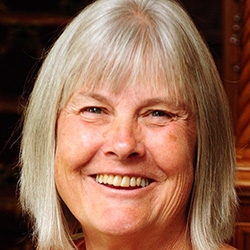

Search Results: emotion
-
- Understand the dynamics of power struggles
- Explore practical strategies for navigating power imbalances
- Discover ways you can share power in various relationships
- Explore how NVC supports a move away from domination, into shared power
-
When working to repair a relationship after conflict, and after reaching mutual care and understanding, you’re more likely to prevent future disconnection in similar situations by coming to clear, specific, and actionable agreements. Ensure requests for agreements come from a negotiable needs-based dialogue. Clarify specifics and plan to revisit agreements to assess their effectiveness.
-
- Hear from four respected NVC trainers offering heartfelt insights and real-life strategies
- Connect with others seeking compassion, courage, and meaningful action
- Attend as a gift — pay what you can to support NVC Academy
- Discover simple, practical tools to stay grounded, clear, and empowered—no matter what’s happening in the world!
-
- 3 full-length courses to deepen your empathy practice
- Learn your body’s “language” and how to listen deeply to it
- Quickly reconnect and return to empathic presence when you are triggered
- Enhance your listening skills and experience greater ease and joy in all your interactions
-
- Dive deep into Peaceful Living: Daily Meditations for Living with Love, Healing and Compassion with the author
- A year-long container to reflect, realign, and return to what matters most
- Experience the combination of Mary’s wisdom, daily meditations, and community
- Enjoy accompaniment and loving support throughout 2026 with like-minded individuals
-
As you witness injustices in the world, tension, anger, hopelessness, despair and more, may rise up in you. These feelings may lead to reactive thinking that doesn't contribute to healing nor wise action. Mourning is a universal need. If your culture pushed away grief and its emotional expression, you may have habits that block your access to the aliveness of grief. Read on for ways to give grief the space and support it needs.
-
To shift reactivity by moving yourself from the position of experiencer to observer, name what’s happening. This can help you access other skills for managing reactivity. Also, create a strong emotional anchor.
-
When you don't have a sense of being heard you can apply skills to help you can interrupt cycles of reactivity and resentment, and create connection. Let's look at six ways that will support you in being heard. These are clarity about the topic and needs; supportive conditions; respect for autonomy; sharing your intention; attending to emotional security; and making clear requests.
-
There's a danger in using empathy exchange to perpetually recirculate and exchange pain (often by telling and re-telling the same old stories), rather than using it as a catalyst for transformation. It can create and further pain in whatever form: anger, destructiveness, hatred, grief, emotional drama, and violence. It can also reinforce dualistic evaluations of "met" vs "unmet" needs. And it can slow down productivity.
-
In this intriguing audio, Jim and Jori Manske create a framework for growing your feeling awareness, and offer daily practices for working with your feelings. Listen to this audio if you’d like to expand your emotional vocabulary!
-
Ask the Trainer: The link between storytelling, being "right," and connecting to an unmet need.
-
Rita Herzog shares how to stay true to your needs while extending empathy in family relationships.
-
Kelly Bryson shows how clear intention and awareness transform pain into growth.
-
John Kinyon guides exercises to build presence and distinguish feelings from observations.
-
Ask the Trainer: "In trainings I say our jackals are thoughts and now I've come to wonder if all thoughts are jackals...?"
-
Listen beneath the surface and move from inner fragmentation to whole-hearted self-connection.
-
Misunderstandings can be painful. We can easily avoid this by checking what the other person understood from what we said, and ask the other person to do the same. Doing this is especially important when it comes to planning, shared decision-making, and when emotions are strong. Also, the more someone knows you, the more they think they already know what you mean -- which can get in the way of really hearing you. Here are a variety of ways to approach this simple strategy.
-
It’s essential to give ourselves time to grapple with the complex feelings surrounding the brutality of state-sanctioned racism and violence. But if all we do is reflect and attend to our emotions we fail to show up, where and when it counts. So let's not perpetuate the violence by standing idly. Instead, here's ten things you can do to move into concrete action to address the continued, untenable, and horrific violence of racism. A list of resources is included.
-
Trainer tip: Feelings of hurt, anger, fear, and resentment can often sound alike. Fear and excitement have the same physiological effects on us, and are often expressed in the same body language. Clearly and specifically naming our emotions and the intensity level can help us resolve conflicts, with a much greater opportunity to get our needs met.
-
Trainer Tip: NVC-based social change naturally emerges from “a certain kind of spirituality”, a quality of spiritual clarity. Intuitions and impulses arising from spiritual clarity are more likely to support sustainable systems. Read on for how to bring more of this in, and ways to transform your complaint into commitment.

Quick Links
Subscription Preferences
Stay In Touch!
Looking for ways to keep up with NVC Academy news, get special offers, free resources, or words of inspiration? Here are five ways to stay engaged:




















